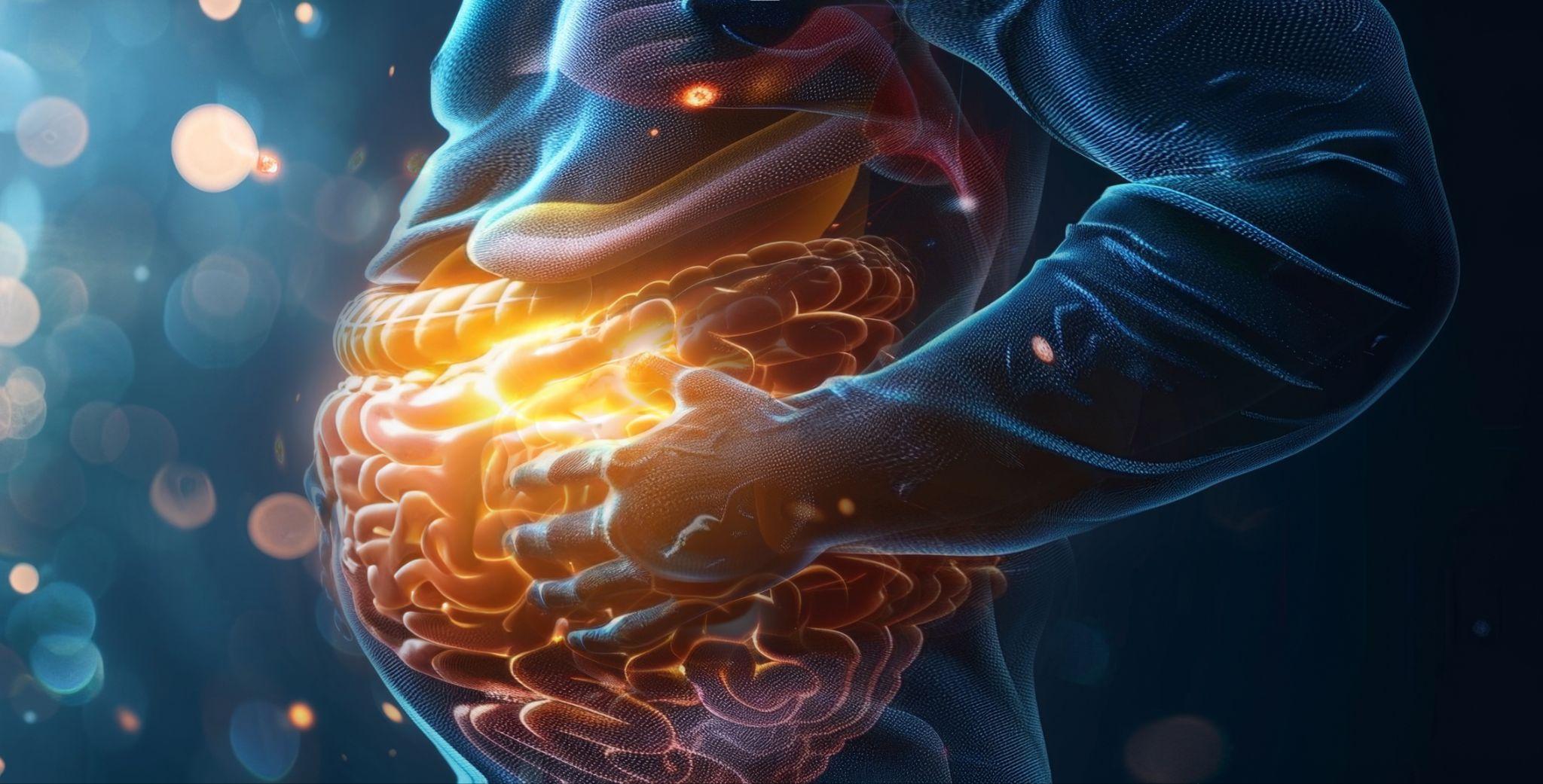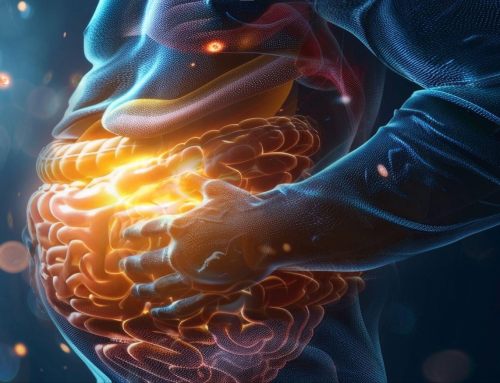Signs, Symptoms & Root Causes of Cognitive Decline in Peri & Menopausal Women
Hormonal changes leading up to and during menopause can cause significant cognitive disruptions for women, further compounding an already difficult transition process. Cognitive decline experienced in perimenopause and menopause results from a multitude of factors, all driving neurophysiological alterations—affecting the body and brain.
Some common signs and symptoms experienced in women during this time include the following:
- Brain fog, forgetfulness
- Low libido
- Mood swings
- Anxiety
- Depression
- Fatigue, decreased overall energy
- Difficulty concentrating
- Sleep disruption
- Decreased resilience to stress
- Hot flashes
- Unexplained weight gain
- Night sweats
- Bloating
- Irregular menstrual cycles
Many of these affect the brain. The reduction of estrogen, among other integral female sex hormones, primarily drives these imbalances affecting neurological health.
THE MANY INTERLINKED ROOT CAUSES:
Disruptions in Homeostasis – Physiology Drives Psychology
Hormones exist in a delicate balance in the body, each having distinct functions integral for modulating and synchronizing nearly all aspects of health, including our neurobiology. Menopause and perimenopause are marked by reductions in key female sex hormones. Menopause is defined as the end of a woman’s reproductive years, while perimenopause is indicated by a decline in reproductive function (1).
Estrogen – A Key Master Regulator
Estrogen has been shown to be an integral neuromodulator in the body, regulating physiological and psychological functions (2). Neurological signs and symptoms of perimenopause and menopause manifest due to marked alterations in hormones, resulting in systemic imbalance. Thermoregulation, sleep, circadian rhythm, and sensory processing are all impeded relative to cognition and mood. Imbalances may also be observed in metabolic, digestive, detoxification, sexual, and cardiovascular systems.
Reductions in hormonal levels during these periods of transition make women more susceptible to cognitive decline, Alzheimer’s disease, dementia, depression, and neurological dysfunction, and at greater risk for developing neurodegenerative diseases (3). Structural changes in the brain are exhibited, as well as more pronounced levels of amyloid-β deposition (4).
A growing body of research highlights the pivotal role estrogen has in modulating brain health. Sufficient amounts of estrogen ensure that the brain is functioning efficiently since estrogen is involved in a vast array of neurological functions, including cognition, mood, memory, neuroplasticity, and neurodevelopment (5). Estrogen levels also affect the production of serotonin and GABA, neurotransmitters significant for modulating mood (6).
Estrogen has also been evidenced to have anti-inflammatory properties. This is notable, as both systemic inflammation and neuroinflammation compromise brain health. Inflammation has also been suggested to be at the root cause of nearly all chronic diseases, further wreaking havoc on many processes in the body and mind (7).
Estrogen is necessary for Nitric Oxide (NO) production, a fleeting gas with a host of functions pertaining to health, such as neuroplasticity. NO synthesis declines with age, along with the reduction in estrogen, further contributing to systemic imbalance and inflammation, impeding cardiovascular and neurophysiological markers of health (8).
Disruptions in estrogen signaling pathways have been evidenced in perimenopause and menopause as a result of loss of estrogen. Estrogen functions through this network of receptors in the brain to promote cognitive function. As sensitivity to estrogen is decreased, brain circuitry is affected, thereby compromising neurochemical function. This is significant as these networks of estrogen receptors control metabolism in the brain by modulating cellular energy via synchronized signaling and transcriptional pathways (9). This network becomes compromised as a result of these marked hormonal changes, impeding cognition, learning, memory, and mood (10).
The limbic system, an area of the forebrain largely responsible for regulating mood and emotion, is rich in estrogen receptors. Therefore, emotional health may also be affected due to reductions in estrogen and overall structural changes in the brain (11).
Further Hormonal Alterations Induce Neurochemical Dysfunction
Hormonal changes observed in peri and menopause can also disrupt the breakdown of neurotransmitters necessary for brain health. While this can make women more prone to anxiety and depression, it can also wreak havoc on cognitive function. Sex hormones influence interactions with neurotransmitters integral to cognition and mood – such as GABA, serotonin, dopamine, and glutamate (12). Reductions in estrogen and other female sex hormones, including testosterone and progesterone, also induce neurobiological changes, as these all exhibit neuromodulating effects. In fact, testosterone has been suggested to play a key role in cognition and mood, especially in the menopause transition.
In addition to these observed changes, marked alterations have also been noted in luteinizing hormone (LH) and follicle-stimulating hormone (FHS) (13). These hormones also have mechanistic roles in modulating genetic expression and plasticity in the brain. Alterations in these hormones further compromise communication amongst neurotransmitters affecting brain health (14).
Imbalances in hormones can arise as a result of these marked changes for women and be further compounded by systems of imbalance in the body. Chronic stress, inflammation, decline in metabolic health, and increased toxic load all contribute to hormonal imbalance and compromised cognitive functioning.
Hypometabolism, Elevated Cortisol & Insulin
Reductions in estrogen, among other regulatory hormones, in conjunction with systemic changes, cause metabolism to become compromised. A hypometabolic state is often accompanied by a decrease in estrogen. Changes to cortisol and insulin are also a result of alterations evidenced in perimenopause and menopause. Cortisol becomes elevated due to reductions in estrogen. Disrupted or impaired sleep and increased anxiety often ensue as a result. Changes in insulin, such as insulin resistance, are also observed as a result of compromised metabolic health. Research highlights metabolic changes observed in menopause – notably those induced in the gut-metabolic pathways – further driving decline in metabolic function (15, 16).
Stress can further impede the body’s physiological homeostasis, resulting in hormonal imbalances. Chronic stress causes alterations in the HPA axis, placing a heavy burden on the adrenal glands. The body adapts to the changes induced by chronic stress by producing adrenocorticotropic hormone (ACTH) – resulting in increased production of cortisol and glucocorticoids from the adrenals. Elevated cortisol to DHEA ratio is a result of chronic stress and adrenal hyperfunction, further compromising hormonal imbalance and cognitive function (17).
Impeded Thyroid, Hormonal & Cognitive Function
The thyroid communicates with every cell in the body. Levels of estrogen affect thyroid function and, therefore, cellular metabolism. Imbalances in thyroid function can impact metabolic and hormonal health, as well as brain and cognitive function. Thyroid regulation is dependent on adequate nutrition, rest, modulating stress, and reduced toxin exposure. Insufficient thyroid production, such as in hypothyroidism, can result in lowered cellular metabolism affecting systemic balance, resulting in many of these manifestations of cognitive decline. Stress can also result in thyroid dysfunction as it suppresses production of Thyroid Stimulating Hormone (TSH) and conversion of T4 to T3, the active form. Stress can impede synthesis of TSH and these necessary conversions, resulting in hypothyroidism.
The Toxic Cascade of Stress
Estrogen is a key modulator of serotonin, among other important neurotransmitters that have key regulatory functions for cognition, mood, sex, and resiliency relative to the stress response (18). Stress can increase hormonal and overall imbalance in the system. Chronic stress compromises communication between systems in the body, causing alterations in the gut microbiome and the HPA axis, wreaking havoc on the adrenal glands. As a result, an increase in the production of cortisol and reductions in DHEA ensue, all of which can further contribute to hormonal and mood imbalance (19).
Stress is also related to neuroinflammation, impaired sleep, and mental health conditions, such as anxiety and depression. Furthermore, stress reduces the body’s ability to digest and detoxify, driving the cascade of inflammatory markers, toxicant status, and compromised metabolism.
Meditation is a way to mitigate the effects of stress while promoting new neural pathways in the brain over time.
Gut Microbiome Alterations Further Impede Balance
The gut microbiome is significant as it governs a diverse array of metabolic pathways for homeostasis through interactions mediated by nutrition, stress, inflammation, sleep, toxicants, and hormones. A diverse and healthy gut ecosystem supports hormonal balance, metabolic health, and inflammation as well as modulates brain function. The gut microflora can become out of balance due to alterations in hormones. Chronic inflammation from insufficient nutrition, toxicant status, and compromised metabolic and gut health can also contribute to imbalances. Dysbiosis describes an imbalance in gut bacteria that can further wreak havoc on female hormones through modifications via the gut-brain-estrogen axis (15).
The Significance of The Estrobolome
The estrobolome refers to the collection of bacteria in the gut that metabolizes and regulates the body’s circulating levels of estrogen. This, in turn, affects estrogen levels in the body, influencing hormonal balance and cognitive function. As the gut microbiome is a key regulator of metabolism and influences the metabolism of estrogen— this is imperative.
Low levels of circulating estrogen can cause an array of physiological and psychological symptoms– including a decline in GI and cognitive health, including brain fog, anxiety, and depression as well as reduced libido. The gut microbiome is a profound modulator of circulating estrogen. Gut microbiota regulates estrogen via the secretion of β-glucuronidase, an enzyme that deconjugates estrogen into its active form. Dysbiosis can compromise this process, resulting in a reduction of circulating estrogen – further driving hormonal imbalance, including cognitive dysfunction and poor metabolic health. This highlights the impactful role the gut microbiome plays in modulating the many processes involved in maintaining health.
REDUCING THE IMPACT:
Support Detox Pathways & Circadian Rhythm
Sufficient detoxification is imperative for modulating healthy levels of hormones. There are a number of genetic variants that can compromise one’s detox capacity, further highlighting the need for sufficient detox (20). Increasing the consumption of antioxidants and vegetables that support detox and glutathione production, including berries, onions, broccoli, and cauliflower, may be recommended. Increasing consumption of filtered water, dry brushing and massage, and ridding the body of toxins through sauna use or exercise are also encouraged in supporting hormonal balance and cognitive health.
Awareness of how environmental factors can affect our biology and genetic expression is also imperative. Environmental endocrine-disrupting chemicals (EDCs) such as pesticides, plastics, metals, food additives, and personal care products can disrupt hormones, impede thyroid function and metabolic health, and cause oxidative stress and inflammation to manifest in the system (22). These findings further highlight the need for improving detoxification and protection in the system.
Sleep is also imperative, given the multitude of these factors. Sleep promotes detox and restoration via the glymphatic system, as well as supports memory consolidation, making it significant for cognitive health. Quality sleep also promotes systemic renewal – including hormonal, metabolic, and muscular health. Sleep is also imperative to the quality and diversity of the microbiome, necessary for modulating all aspects of health and influencing how our genes are expressed. Furthermore, getting sunlight first thing in the morning supports circadian rhythm balance. This is important as metabolic, hormonal, and nervous systems are all affected by circadian rhythm (21).
Nourishment for Body & Mind
Nutrient-dense foods, including high-quality anti-inflammatory fats and proteins, along with a diverse array of fruits and vegetables, support hormonal and cognitive health. Omega-3 fatty acids have been shown to reduce inflammation, having favorable effects on the brain while also serving as precursors for hormones. Healthy fats also support nervous system functioning, having neuroprotective properties. In fact, consumption of docosahexaenoic acid (DHA), a type of omega-3 fatty acid found in salmon, has been associated with a significant reduction in the risk of developing cognitive impairments such as dementia (23).
Optimizing the health of the microbiome supports hormonal, metabolic, and cognitive health. Increasing intake of phytonutrients and beneficial bacteria from sources of pre and probiotics support a healthy, diverse gut ecosystem. Refraining from refined carbohydrates and processed foods is also recommended, as these further disrupt hormonal regulation and wreak havoc on metabolic, microbiome, and cognitive health. Prebiotics and probiotics can also support systemic balance through modifications in microbiota, as a number of neurotransmitters are synthesized by beneficial bacteria in the gut.
Antioxidant consumption supports quenching of free radicals that can otherwise compromise brain function and result in oxidative stress, inflammation, and an overall toxic burden to the body and brain, further impeding hormonal balance (24). Nutrition is essential in providing the brain and body with the materials necessary for hormonal regulation as well as cognitive health. B vitamins, for instance, serve as cofactors for neurotransmitters important for neurological health. Vitamin B12 is a cofactor for serotonin and dopamine. Vitamin B6 is a cofactor for GABA synthesis, while being important for hormonal regulation. Vitamin D is also significant for hormonal balance and cognitive health with various receptors in the brain. Vitamin C supports adrenal health. Zinc is also imperative as it modulates gut, hormonal, and neurotransmitter functioning.
Improve Muscle Mass, Testosterone & Mood
Weight resistance training supports healthy levels of testosterone while improving muscle mass. Muscle is significant for health and longevity. As muscle mass declines, insulin levels rise. Therefore, maintaining sufficient muscle mass has vast implications for metabolic health, in addition to modulating hormonal and cognitive function (25). Testosterone is an important regulator of muscle mass, as well as mood and cognitive health. Consistent exercise supports the modulation of brain function, mood, and mental acuity. Exercise also supports NO production and stress reduction.
IF & Bioindividual Metabolic Needs
Intermittent fasting (IF) supports cellular, metabolic, hormonal, and cognitive health. IF has been found to reduce inflammation while inducing autophagy, or cellular renewal. Further, IF has been shown to improve markers of insulin resistance and metabolic health, supporting hormonal balance and cognitive health. Fasting has also been evidenced to induce significant improvements in a number of these biomarkers of health in women while lowering the risk of developing chronic disease (26). While metabolic needs vary, IF coupled with the nutritional suggestions mentioned above and modest amounts of complex carbohydrates, can support hormonal balance and improve cognitive function.
Increase Vagal Tone & HRV
As stress exerts a number of negative effects on the body and can further wreak havoc on hormonal, metabolic, microbiome, and cognitive health, engaging in activities that help to reduce the stress response is greatly encouraged. A way to do this is to stimulate the vagus nerve, the longest cranial nerve connecting the brain to the gut. While there is a growing body of research in support of yoga, yoga nidra, and acupuncture for improving vagal tone, further ways include laughing, singing, gargling, or even “shaking” as a way to rid the body of stress.
Deep vagal breathing can also be effective in increasing NO production while improving markers of heart rate variability (HRV), a measure of parasympathetic nervous system dominance, suggested to improve hormonal health. Sex is another way to improve HRV and stimulate the vagus nerve. In a recent study, sex in menopausal women was shown to improve cardiac autonomic function via increased HRV (27).
Mind-Body Attunement
Tuning into our body is significant for improving all facets of our health. Our body is always relaying information to us relative to its state of functioning, health, and needs. The symptoms experienced in peri and menopause are the body’s ways of communicating relative to its needs in light of these imbalances. Providing the body with what it requires to support these growing needs supports hormonal balance and overall cognitive health.
The Power of Hormone Optimization
You won’t want to miss this 2-part event, Mental Health in Menopause. Part 1 was held on January 16th and is now available to view here. You can still join us for Part 2 on January 23rd from 5-7:30 pm, in which expert speakers Jeffrey Bland, Sara Gottfried, Jaclyn Smeaton, and Nayan Patel dive into clinically addressing this topic with hormone optimization.
Click the links to learn more and register for Part 2 or to view Part 1.
References:
- Santoro N., Roeca C., Peters B.A., Neal-Perry G. The Menopause Transition: Signs, Symptoms, and Management Options. Clin. Endocrinol. Metab. 2021;106:1–15. doi: 10.1210/clinem/dgaa764. [PubMed] [CrossRef] [Google Scholar] [Ref list]
- Georgakis M.K., Thomopoulos T., Diamantaras A.A., Kalogirou E.I., Skalkidou A., Daskalopoulou S.S., Petridou E.T. Association of Age at Menopause and Duration of Reproductive Period with Depression after Menopause: A Systematic Review and Meta-analysis. JAMA Psychiatry. 2016;73:139–149. doi: 10.1001/jamapsychiatry.2015.2653.
- Sochocka M, Karska J, Pszczołowska M, Ochnik M, Fułek M, Fułek K, Kurpas D, Chojdak-Łukasiewicz J, Rosner-Tenerowicz A, Leszek J. Cognitive Decline in Early and Premature Menopause. Int J Mol Sci. 2023 Mar 31;24(7):6566. doi: 10.3390/ijms24076566. PMID: 37047549; PMCID: PMC10095144.
- Mosconi L, Berti V, Dyke J, Schelbaum E, Jett S, Loughlin L, Jang G, Rahman A, Hristov H, Pahlajani S, Andrews R, Matthews D, Etingin O, Ganzer C, de Leon M, Isaacson R, Brinton RD. Menopause impacts human brain structure, connectivity, energy metabolism, and amyloid-beta deposition. Sci Rep. 2021 Jun 9;11(1):10867. doi: 10.1038/s41598-021-90084-y. PMID: 34108509; PMCID: PMC8190071.
- Hwang WJ, Lee TY, Kim NS, Kwon JS. The Role of Estrogen Receptors and Their Signaling across Psychiatric Disorders. Int J Mol Sci. 2020 Dec 31;22(1):373. doi: 10.3390/ijms22010373. PMID: 33396472; PMCID: PMC7794990.
- Kundakovic M, Rocks D. Sex hormone fluctuation and increased female risk for depression and anxiety disorders: From clinical evidence to molecular mechanisms. Front Neuroendocrinol. 2022 Jul;66:101010. doi: 10.1016/j.yfrne.2022.101010. Epub 2022 Jun 15. PMID: 35716803; PMCID: PMC9715398.
- Furman, D., Campisi, J., Verdin, E. et al. Chronic inflammation in the etiology of disease across the life span. Nat Med 25, 1822–1832 (2019). https://doi.org/10.1038/s41591-019-0675-0
- Novella S., Dantas A., Segarra G., Medina P & Hermenegildo C. (2012). Vascular aging in women: is estrogen the fountain of youth?Physiol, 3, https://doi.org/10.3389/fphys.2012.00165
- Barth C, Villringer A, Sacher J. Sex hormones affect neurotransmitters and shape the adult female brain during hormonal transition periods. Front Neurosci. 2015 Feb 20;9:37. doi: 10.3389/fnins.2015.00037. PMID: 25750611; PMCID: PMC4335177.
- Brinton RD, Yao J, Yin F, Mack WJ, Cadenas E. Perimenopause as a neurological transition state. Nat Rev Endocrinol. 2015 Jul;11(7):393-405. doi: 10.1038/nrendo.2015.82. Epub 2015 May 26. PMID: 26007613; PMCID: PMC9934205.
- ter Horst GJ. Estrogen in the limbic system. Vitam Horm. 2010;82:319-38. doi: 10.1016/S0083-6729(10)82017-5. PMID: 20472146.
- E. Seeman, B. Singer, C W. Wilkinson, & B McEwen, Gender differences in age-related changes in HPA axis reactivity. Psychoneuroendocrinology, Volume 26, Issue 3, 2001,225-240, ISSN 0306-4530
- Maki PM, Jaff NG. Brain fog in menopause: a health-care professional’s guide for decision-making and counseling on cognition. Climacteric. 2022 Dec;25(6):570-578. doi: 10.1080/13697137.2022.2122792. Epub 2022 Sep 30. PMID: 36178170.
- Holesh J.E., Bass A.N., Lord M. StatPearls Publishing; Treasure Island, FL, USA: 2022. [(accessed on 10 February 2023)]. Physiology, Ovulation. Available online: http://www.ncbi.nlm.nih.gov/books/NBK441996/ [PubMed] [Google Scholar]
- Bermingham KM, Linenberg I, Hall WL, Kadé K, Franks PW, Davies R, Wolf J, Hadjigeorgiou G, Asnicar F, Segata N, Manson JE, Newson LR, Delahanty LM, Ordovas JM, Chan AT, Spector TD, Valdes AM, Berry SE. Menopause is associated with postprandial metabolism, metabolic health and lifestyle: The ZOE PREDICT study. EBioMedicine. 2022 Nov;85:104303. doi: 10.1016/j.ebiom.2022.104303. Epub 2022 Oct 18. PMID: 36270905; PMCID: PMC9669773.
- Stachowiak G, Pertyński T, Pertyńska-Marczewska M. Metabolic disorders in menopause. Prz Menopauzalny. 2015 Mar;14(1):59-64. doi: 10.5114/pm.2015.50000. Epub 2015 Mar 25. PMID: 26327890; PMCID: PMC4440199.
- Biegon A. (1990). Effects of steroid hormones on the serotonergic system. N.Y. Acad. Scie. 600, 427–432. discussion: 432–434. 10.1111/j.1749-6632.1990.tb16899.x
- Joëls M, Karst H, Krugers HJ, Lucassen PJ. Chronic stress: implications for neuronal morphology, function and neurogenesis. Front Neuroendocrinol. 2007 Aug-Sep;28(2-3):72-96. doi: 10.1016/j.yfrne.2007.04.001. Epub 2007 May 1. PMID: 17544065
- Baker JM, Al-Nakkash L, Herbst-Kralovetz MM. Estrogen-gut microbiome axis: Physiological and clinical implications. Maturitas. 2017 Sep;103:45-53. doi: 10.1016/j.maturitas.2017.06.025. Epub 2017 Jun 23. PMID: 28778332.
- Aronica L, Ordovas JM, Volkov A, Lamb JJ, Stone PM, Minich D, Leary M, Class M, Metti D, Larson IA, Contractor N, Eck B, Bland JS. Genetic Biomarkers of Metabolic Detoxification for Personalized Lifestyle Medicine. Nutrients. 2022 Feb 11;14(4):768. doi: 10.3390/nu14040768. PMID: 35215417; PMCID: PMC8876337.
- Crislip GR, Johnston JG, Douma LG, Costello HM, Juffre A, Boyd K, Li W, Maugans CC, Gutierrez-Monreal M, Esser KA, Bryant AJ, Liu AC, Gumz ML. Circadian Rhythm Effects on the Molecular Regulation of Physiological Systems. Compr Physiol. 2021 Dec 29;12(1):2769-2798. doi: 10.1002/cphy.c210011. PMID: 34964116.
- Kumar M. et al. (2020). Environmental endocrine-disrupting chemical exposure: role in non-communicable diseases. Public Health, 8. https://doi.org/10.3389/fpubh.2020.553850
- Engelhart MJ, Geerlings MI, Ruitenberg A, Van Swieten JC, Hofman A, Witteman JC, et al. Diet and risk of dementia: Does fat matter?: The Rotterdam Study. 2002;59:1915–1921
- Chertkow H. Treating mild cognitive impairment. Can Rev Alzheimers Dis Other Dement. 2006;8:12–22.
- Vingren JL, Kraemer WJ, Ratamess NA, Anderson JM, Volek JS, Maresh CM. Testosterone physiology in resistance exercise and training: the up-stream regulatory elements. Sports Med. 2010 Dec 1;40(12):1037-53. doi: 10.2165/11536910-000000000-00000. PMID: 21058750.
- Nair PM, Khawale PG. Role of therapeutic fasting in women’s health: An overview. J Midlife Health. 2016 Apr-Jun;7(2):61-4. doi: 10.4103/0976-7800.185325. PMID: 27499591; PMCID: PMC4960941.
- Tolunay H, Yıldırım E, Gökoğlan Y, Buğan B, Saatçi Yaşar A, Çelik M, Yüksel UÇ, Kabul HK, Barçın C. The Relationship Between Sexual Activity and Heart Rate Variability in Menopausal Women. Anatol J Cardiol. 2022 Jul;26(7):543-551. doi: 10.5152/AnatolJCardiol.2022.1180. PMID: 35791710; PMCID: PMC9361339.












